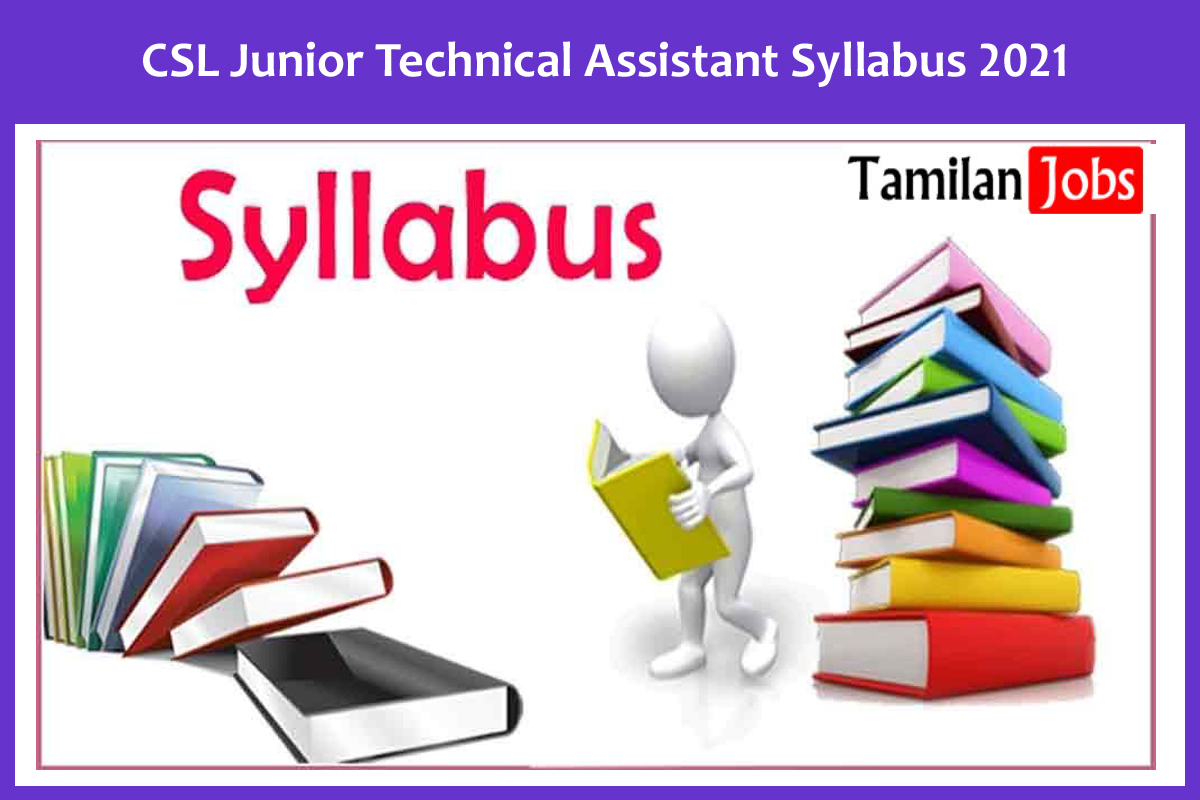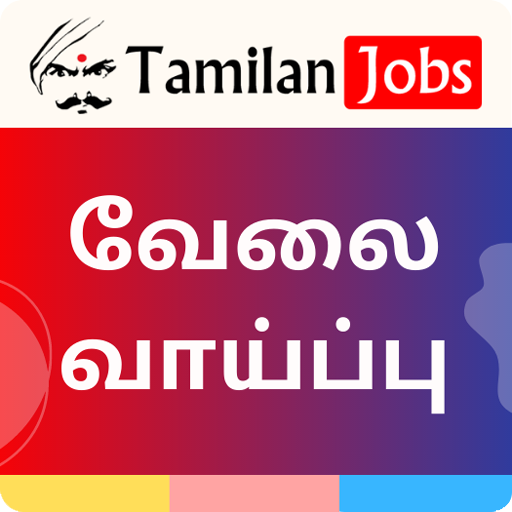CSL Junior Technical Assistant Syllabus 2021: Cochin Shipyard Limited (CSL) officials have released the CSL Syllabus 2021 on its official website. Candidates who have all applied For the CSL Junior Technical Exam now check your Exam syllabus from here. So, that candidates can get a clear idea regarding how to prepare for the examination. Additionally, We have also attached the Exam Pattern along with the syllabus. Therefore, all the eligible and interested candidates kindly check your syllabus as well as exam pattern from the direct link given below.

CSL Junior Technical Assistant Syllabus 2021 – Overview
| Download CSL Junior Technical Assistant Syllabus 2021 – Overview | |
|---|---|
| Organization | Cochin Shipyard Limited (CSL) |
| Post Name | Manager |
| Category | Syllabus |
| Syllabus | Released |
| Selection Process | Online Test & Written Test |
| Official website | https://cochinshipyard.in/ |
CSL Junior Technical Assistant Selection Process 2021
- Online Test
- Written Test
CSL Junior Technical Assistant Exam Pattern 2021:
| Types | Exam type | Marks |
| Phase 1 | Part A: Objective Type Test (General Knowledge, General English, Reasoning and Quantitative Aptitude) |
70 marks |
| Part B: Discipline related Test | ||
| Phase 2 | Descriptive type Written Test | 30 marks |
| Total | 100 marks | |
| No. Of Questions In Each Section/ Marks Per Section | |||||
| General Knowledge | General English | Reasoning | Quantitative Aptitude | Discipline related | Total no. of questions for test / Max marks |
| 5 | 5 | 5 | 5 | 50 | 70 |
Note: Each question carries one mark. There shall be no negative marks
CSL Junior Technical Assistant 2021 Syllabus
Detailed Syllabus Of Part A:
General Knowledge:
- Facts about India and other countries: Basic facts / Geography /Tourism / Transport systems / Personalities / Places / History /Constitution / Economy / Writers / Literatures / Indian States & Union Territories / International Organizations.
- General Science: Branches of studies / Scientific instruments and appliances / Physics / Chemistry / Biology
- Sports & Games
- Important Events/ Movements / Leaders / Places /Years
- Writers – Authors – Biography – Autobiography
- Abbreviations
General English
- Spotting Errors
- Vocabulary usage
- Sentence Completion
- Synonyms
- Antonyms
- Reconstruction of sentences
- One word substitution
- Idioms & Phrases
- Grammar
- Correct usage of Articles
- Prepositions
- Singular and Plural
Reasoning:
- Analogy
- Classification
- Series Completion
- Coding-Decoding
- Blood Relation
- Direction Sense Test
- Alphabet Test
- Number and Ranking
- Puzzle Test
- Odd Man
- General Intelligence
Quantitative Aptitude:
- Number system
- Fraction and Decimals
- Simplification
- Volume and surface areas
- Square roots and Cube roots
- Problems based on numbers
- Speed
- Time and Distance
- Simple Interest
- Compound Interest
- Boats and Streams
- Problems on Trains
- Percentage – Interest
- HCF and LCM
- Average
- Ratio and Proportion
- Time and Work
- Problems based on ages / Profit, Loss and Discount, Statistics / Permutations & Combinations / Probability.
Detailed Syllabus of Part B:
Syllabus for Junior Technical Assistant (Electrical):
Basic Electrical Engineering:
- Network theorems and laws
- Magnetic circuits
- AC fundamentals
- RLC circuits
Static and Rotating AC&DC Machines:
- DC generators
- DC motors
- Transformers
- Synchronous generators
- Synchronous motors
- Induction motors
- Single-phase motors
Power System:
- Generation of electrical power
- Transmission and distribution
- Circuit breakers
- Cables
Electrical Measurements:
- Moving coil instruments
- Moving iron instruments
- Measurement of current, voltage, frequency, and energy
- Bridge circuits
Semiconductor Devices:
- Semiconductors
- Diodes and power supplies
- Transistors
Basic Computer Applications:
- Hardware and software
- Operating systems and applications
- Internet
Syllabus for Junior Technical Assistant (Mechanical):
Manufacturing Processes:
- Casting
- Forging
- Rolling
- Extrusion
- Machining including surface
- finishing
Welding:
- Types of welding
- welding defects
- Testing of welds
- Brazing and soldering
Theory of Machines and Machine Design:
- Fundamentals and types of
machines - Common mechanisms
- Cams and followers
- Common transmissions
- Flywheels and governors
- Brakes, dynamometers, clutches, and bearings
- Balancing and vibration
Thermal Engineering:
- Energy sources
- Fundamentals of thermodynamics
- Ideal gasses
- Steam turbines and condensers
- Heat Transfer
Applied Mechanics:
- Forces and moments
- Friction
- Centroid and Centre of Gravity
- Simple machines, pulleys, blocks, and wheels
- Kinetics
- Kinematics
- Work, power, energy
Metallurgy and Material Properties:
- Physical, Mechanical, Thermal, Electrical, Magnetic Properties, etc
- Effect of heat treatment
- Surface hardness and hardening
- Corrosion
- Testing of metals
- Lubricants and their properties
Strength of Materials:
- Stress and strain
- Bending and shear forces
- Bending and shear stress
- Moment of Inertia
- Torsion
Fluid Mechanics:
- Properties of liquids
- Fluid dynamics
- Classification of fluids
- Laws related to fluid flow and dynamics
- Turbines
Basic Computer Applications:
- Hardware and software
- Operating systems and applications
- Internet
Basics of Electrical Engineering and Power Generation:
- Electrical power generation, transmission, and distribution
- AC fundamentals
- Measuring instruments
- DC motors
- AC appliances
- Utilization of electrical energy
- Electrical safety
Industrial Management:
- Management process
- Organizational Management
- Human resource management
- Material Management
Metrology and Instrumentation:
- Classification of instruments – range and span, accuracy and precision,
reliability, calibration, hysteresis and dead zone, drift, sensitivity,
threshold and resolution, repeatability and reproducibility, linearity, speed of response, fidelity and dynamic errors, overshoot. - Measurement of error– classification of errors, environmental errors,
signal transmission errors, observation errors, operational errors. - Transducers: Classification of transducers- active and passive, resistive, inductive, capacitive, piezo, resistive, Thermo resistive
- Specification, selection, and application for pressure, temperature, flow, humidity, displacement, velocity, force, strain, sound.
- Control Systems
- Measurement of displacement, flow, temperature, strain, miscellaneous.
- Limits, fits, tolerances, and gauges
- Screw thread measurement – Surface finish measurement
Construction and functioning of various machines:
- Pumps
- Compressors
- Boilers
- Turbines
- IC Engines
- Purifiers and separators
- Hydraulic machinery and lifting equipment etc
Refrigeration and Air-conditioning:
- Basics of refrigeration
- Refrigeration cycles
- Refrigerants
- Components of a refrigeration system
- Air conditioning
- Air conditioning Systems
- Air Distribution Systems

